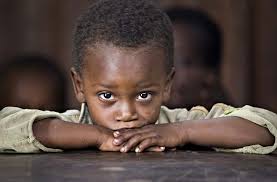Africa/Sudafrica/29 de Julio de 2016/Fuente: All Africa
RESUMEN: La WCED recuerda al profesorado sobre su enfoque estricto con relación al castigo corporal. El Departamento de Educación del Cabo Occidental (WCED) considera que los incidentes de castigo corporal es muy grave. Por consiguiente, el departamento ha emitido una circular (0024/2016) para todas las escuelas y los funcionarios para recordarles que el Departamento tomará estrictas medidas disciplinarias contra los empleados que administran el castigo corporal o los alumnos de asalto. Los castigos corporales y asalto son considerados como la misma, y llevan las mismas sanciones, en términos de la Ley de SA Escuelas. De acuerdo con cifras estadísticas SA para seis provincias para el período de 2009 a 2012, el Cabo Occidental tiene la incidencia más baja de los castigos corporales en el país.Sin embargo, mientras que el número de casos notificados de forma independiente con Stats SA sigue siendo el más bajo, el Cabo Occidental en general, tiene el mayor número de casos que son investigados por el Departamento, como resultado de nuestros mecanismos de información y el compromiso con la investigación de todos los casos reportados a nosotros, ya sea a través de la línea directa de escuelas Seguras, oa través de las escuelas y oficinas del distrito.
The Western Cape Education Department (WCED) views incidents of corporal punishment in a very serious light.
My department has therefore issued a circular (0024/2016) to all schools and officials to remind them that the department will take strict disciplinary action against employees who administer corporal punishment or who assault learners.
Corporal punishment and assault are regarded as the same, and carry the same sanctions, in terms of the SA Schools Act.
According to Stats SA figures for six provinces for the period 2009 to 2012, the Western Cape has the lowest incidence of corporal punishment in the country.
Stats SA figures for these provinces are as follows:
- Eastern Cape: 30.3%
- KwaZulu-Natal: 21.4%
- Free State: 18.4%
- Mpumalanga: 11.5%
- Gauteng: 4.6%
- Western Cape: 4.5%
However, while the number of cases reported independently to Stats SA remains the lowest, the Western Cape generally has the highest number of cases that are investigated by the Department, as a result of our reporting mechanisms and commitment to investigating every case reported to us either through the Safe Schools Hotline, or through the schools and district offices.
Our record shows that the department does not hesitate when it comes to investigating allegations of corporal punishment and charging those responsible.
The WCED charged 160 teachers with assault, mainly corporal punishment, during the 2013/15 financial year, 204 in 2014/15 and 222 in 2015/16.
The figures reflect high levels of reporting by the department, but not necessarily the incidence of corporal punishment in the country as a whole.
While this increase is completely unacceptable, it is also encouraging that more cases are coming to the attention of the Department.
What continues to remain unacceptable is if there are serious incidents that are left unreported.
In the Western Cape we are committed to building a society based on the values of the Constitution. Physical assault does not reflect these values.
At the same time, the WCED is well aware of the challenges that many teachers face when managing and attempting to change behaviour.
The WCED provides extensive training and support on discipline and positive behaviour programmes via our district offices.
Those providing the training and support include former principals and teachers with many years of experience in dealing with the issue, and professional staff such as school psychologists and social workers.
The WCED has recently completed a roadshow to all districts and have included a discussion on Corporal Punishment with principals, also taking into account their concerns about processes followed when investigating such incidents, and the safety and actions of educators and staff when learners act in a violent manner or attend school high on drugs.
Fuente: http://allafrica.com/stories/201607261115.html
Fuente de la imagen: http://www.mansunides.org/es/proyecto-educacion-africa/ong-etiopia/construccion-escuela-infantil








 Users Today : 5
Users Today : 5 Total Users : 35460214
Total Users : 35460214 Views Today : 6
Views Today : 6 Total views : 3418901
Total views : 3418901